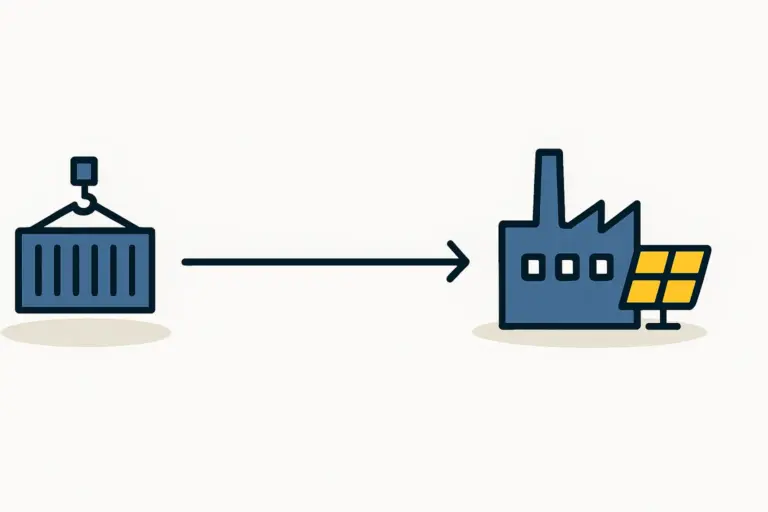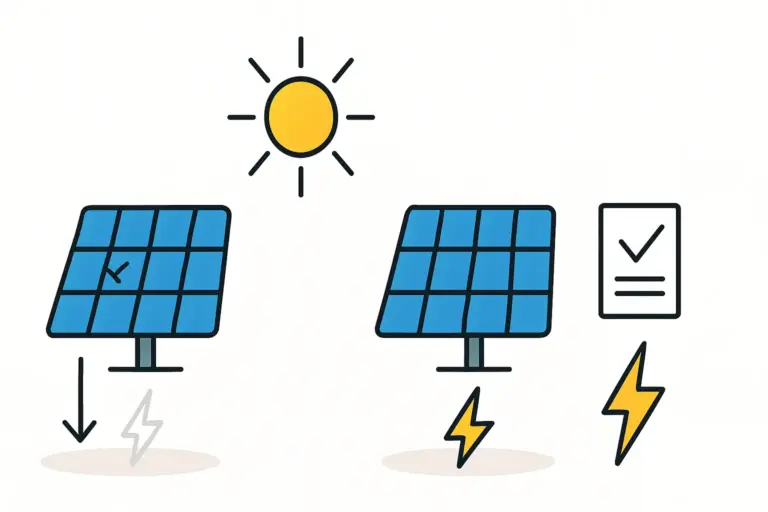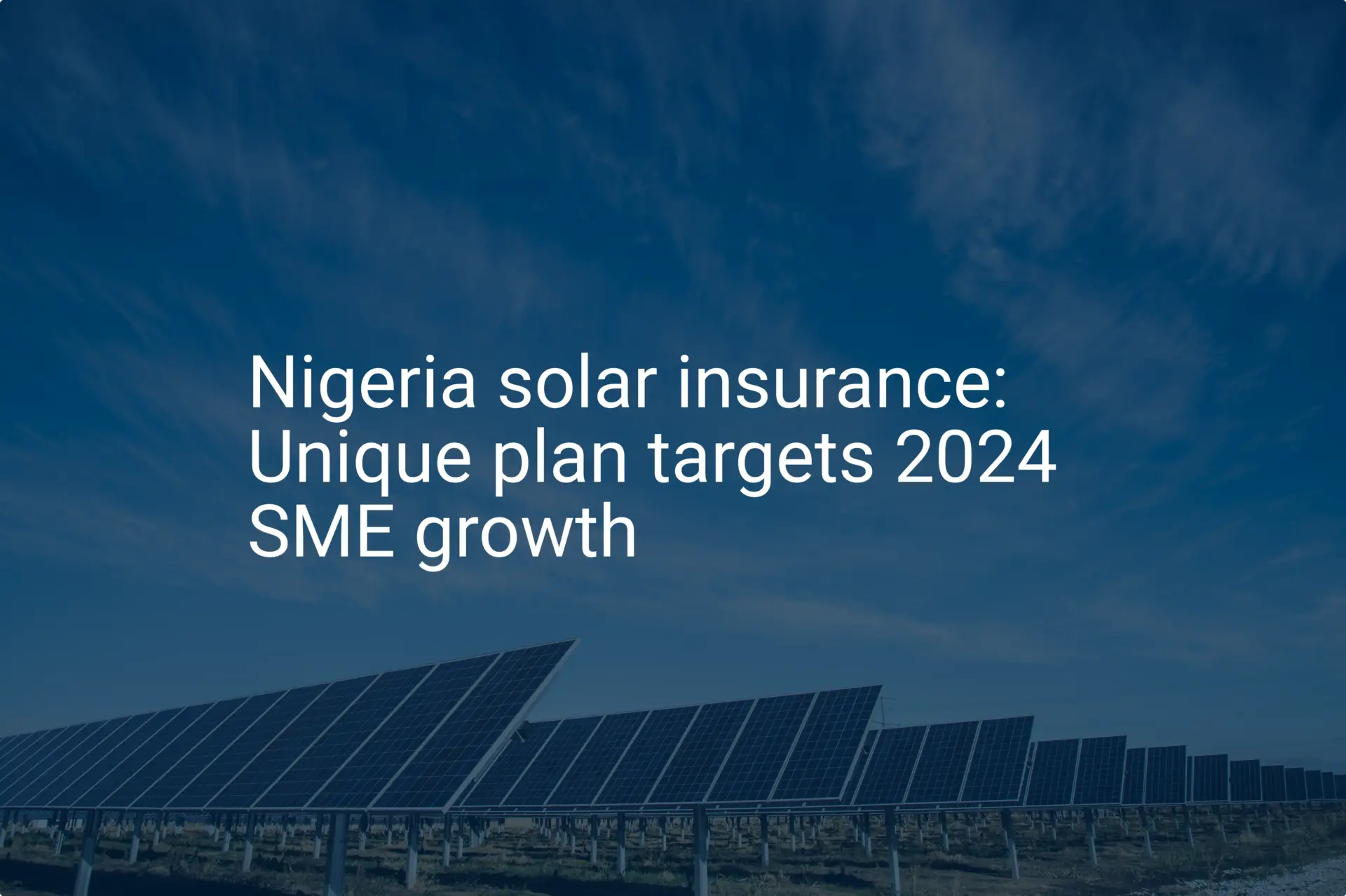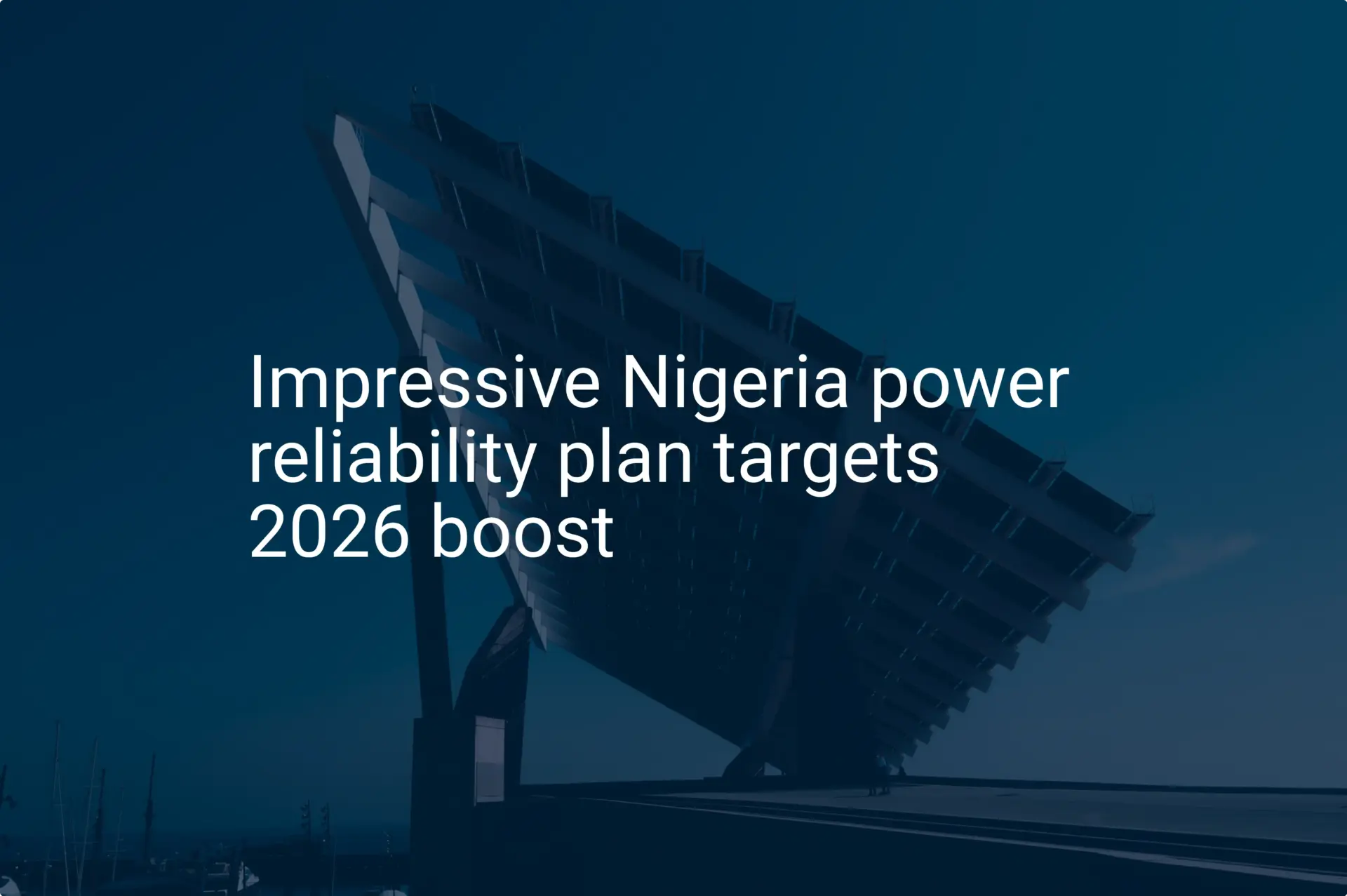Investors considering a new venture typically look for a few key factors: strong market demand, solid government support, and a clear path to profitability. In Niger, these elements are converging to create a compelling opportunity in renewable energy manufacturing.
The country has one of the world’s highest levels of solar irradiation, yet one of its lowest electricity access rates—making the foundational demand for solar energy immense.
Recognizing this potential, the Government of Niger has established a robust legal framework to attract the private investment needed to build a domestic manufacturing base. For any entrepreneur or established company looking to enter this market, understanding these incentives isn’t just an advantage—it is the cornerstone of a viable business strategy. This guide examines the financial and regulatory benefits available under Niger’s Investment Code for those looking to establish solar module production facilities.
Understanding Niger’s Strategic Vision for Energy
To appreciate the scope of the available incentives, it helps to understand the government’s motivation. Niger’s national energy strategy is driven by the need to reduce reliance on imported electricity, stimulate industrial development, and provide reliable power to its citizens and businesses.
With solar irradiation averaging an exceptional 6.5 kWh/m²/day, solar power is the most logical path toward energy independence. Building this capacity, however, requires significant capital investment in manufacturing.
The Niger Investment Code (Law N° 2014-09) is the primary instrument for de-risking such investments and attracting the necessary foreign and domestic capital. It designates energy as a ‘priority sector,’ which makes new ventures in solar module manufacturing eligible for a comprehensive package of benefits.
The Niger Investment Code: A Framework for Growth
The Investment Code is a legally binding framework offering stability and predictability for investors. It outlines specific advantages for new enterprises that contribute to the country’s economic development goals.
Rather than a collection of ad-hoc promises, it is a structured system with clear eligibility criteria and defined benefits. For prospective solar panel manufacturers, this means the government has already created the legal pathways to make such a business financially attractive. These incentives are not negotiated on a case-by-case basis; they are codified in law for all qualifying projects.
Core Financial Incentives for Solar Manufacturers
The benefits offered under the code directly address the most significant financial hurdles in establishing a new factory: high initial capital expenditure and the time required to achieve profitability.
Tax Holidays on Corporate Profits
One of the most powerful incentives is a temporary exemption from corporate income tax (BIC). Depending on the size of the investment and its geographic location within Niger, a new manufacturing enterprise can be granted a tax holiday of five to ten years.
This exemption allows a new factory to reinvest its early profits directly into the business—for expansion, training, or building operational resilience. The result is a significantly shorter payback period for the initial investment and improved financial projections in any serious solar module manufacturing business plan. This period of tax-free operation provides critical breathing room as the facility scales up production and establishes its market presence.
Customs Duty and VAT Exemptions
Setting up a solar module factory requires importing specialized machinery, components, and raw materials. Under a standard import regime, customs duties and Value Added Tax (VAT) would add a substantial percentage to these initial costs.
The Investment Code provides a full exemption from all customs duties and taxes on imported machinery, equipment, and tools needed for production, as well as on the raw materials required for manufacturing.
This provision dramatically lowers the upfront cost to set up a solar panel factory. Removing import-related taxes reduces the total capital required, which makes the project more accessible and improves its internal rate of return (IRR). From our experience with turnkey projects in emerging markets, this single incentive can be the deciding factor in a project’s financial viability.

Navigating the Application Process
Accessing these incentives requires a formal application process managed by the Agency for the Promotion of Private Investment and Strategic Projects (APIP-SP), often referred to as the ‘Maison de l’Entreprise.’ This agency serves as a single window for investors, streamlining what could otherwise be a complex bureaucratic process.
Investors are required to submit a detailed file containing:
- A formal application for approval under the Investment Code.
- A comprehensive feasibility study and business plan.
- Proof of financing and details of the investment schedule.
- Technical specifications of the proposed factory and equipment.
The clarity and professionalism of this submission are critical. The government seeks serious, well-planned projects with a high probability of success that will contribute meaningfully to the local economy.
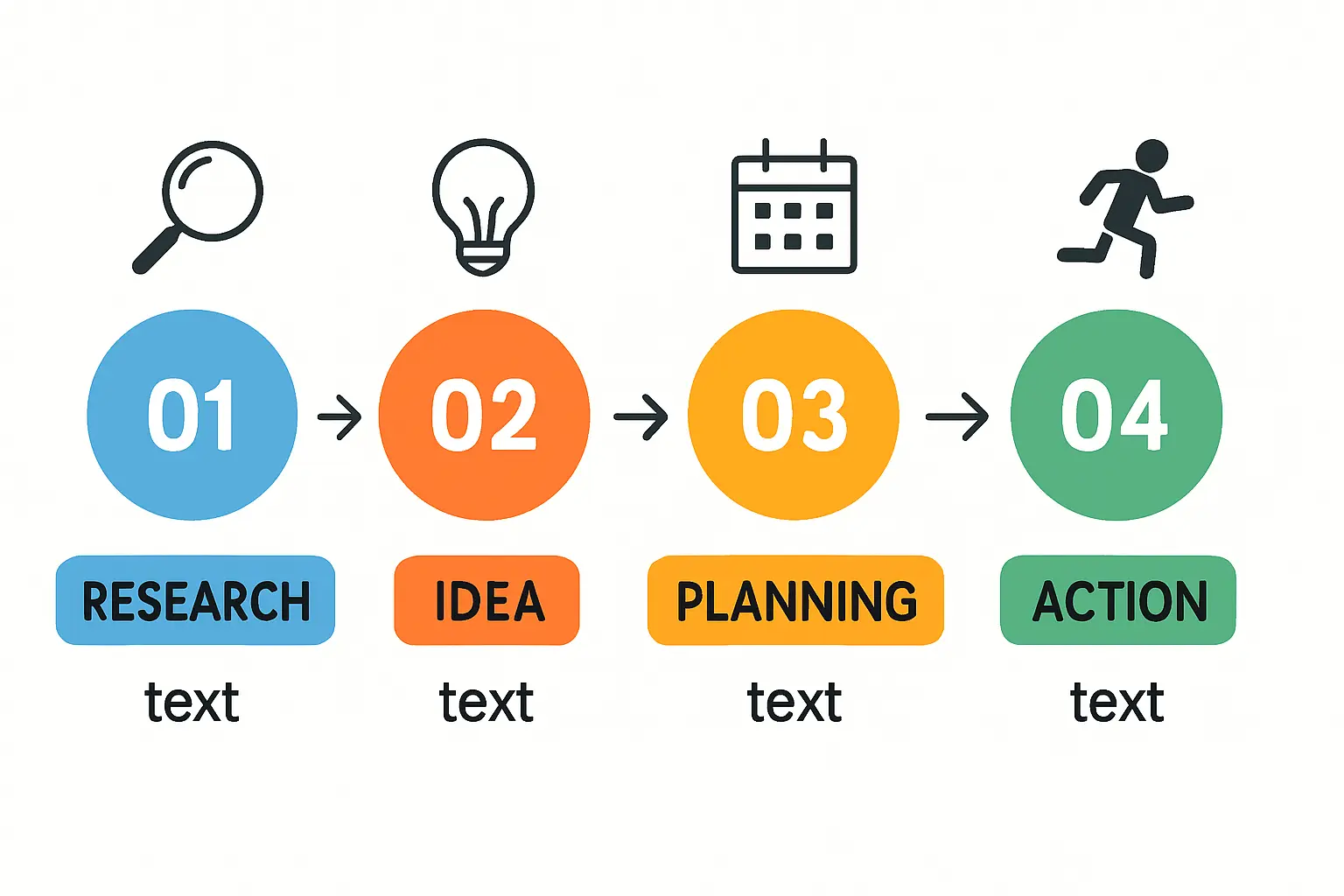
The Potential of Special Economic Zones (SEZs)
While still in development, Special Economic Zones (SEZs) represent the next step for investment incentives in Niger. An SEZ is a geographically designated area that offers investors a more favorable business environment than the rest of the country.
Potential benefits within an SEZ could include:
- Even longer tax holidays and more extensive customs exemptions.
- Pre-approved land use and streamlined permitting.
- Access to dedicated, high-quality infrastructure (power, water, logistics).
- Simplified administrative and labor regulations.
For a strategic investor, monitoring the development of these zones is essential, as locating a factory within one could provide a significant long-term competitive advantage.
A Practical Example: Impact on a 50 MW Solar Factory
To illustrate the tangible impact of these incentives, consider a hypothetical 50 MW solar module factory.
Without Incentives: The investor would pay full import duties on a turnkey solar panel production line, adding millions of dollars to the initial CAPEX. Once operational, the business would be subject to standard corporate income tax from its first year of profit, slowing down reinvestment.
With Investment Code Approval: The entire production line is imported duty-free, preserving capital for operational needs. The company operates for approximately seven years without paying corporate income tax, allowing it to rapidly build cash reserves, pay down financing, and potentially fund a second production line from its own revenue.
The difference is stark. The incentives transform a challenging investment into a financially robust and attractive proposition.

Frequently Asked Questions (FAQ)
What is the minimum investment required to qualify for these incentives?
The Investment Code outlines different tiers of benefits based on the investment amount. While smaller projects can qualify, larger investments often receive more extensive benefits, such as longer tax holidays. A detailed business plan is needed to confirm the specific tier.
Are these incentives guaranteed for foreign investors?
Yes, the Investment Code of Niger applies equally to domestic and foreign investors. It is designed specifically to attract foreign direct investment (FDI) and provides legal protections for foreign-owned assets.
How long does the approval process typically take?
While timelines can vary, the goal of the APIP-SP single-window system is to provide a decision within 30 days of submitting a complete and compliant application file.
What happens after the tax holiday period ends?
After the exemption period ends, the company becomes subject to the standard corporate tax regime then in effect. Financial planning for the project must account for this transition.
Are there local content or employment requirements?
The Investment Code encourages hiring and training Nigerien nationals and using local resources where possible. While not always a rigid requirement for qualification, demonstrating a commitment to local economic development can strengthen an application.
Conclusion: Translating Policy into Opportunity
Niger has created a compelling, legally grounded incentive structure for investors in renewable energy manufacturing. These policies directly mitigate the primary financial risks of starting a new industrial enterprise. The combination of multi-year tax holidays and complete exemptions from import duties on capital equipment creates a powerful financial foundation for success.
For international entrepreneurs and established companies, this framework transforms a potential market into a tangible investment opportunity. Capitalizing on it, however, requires meticulous planning and a deep understanding of the technical and operational requirements of running a solar factory. With the right preparation, Niger offers a clear and welcoming path for those ready to build the future of energy in West Africa.



